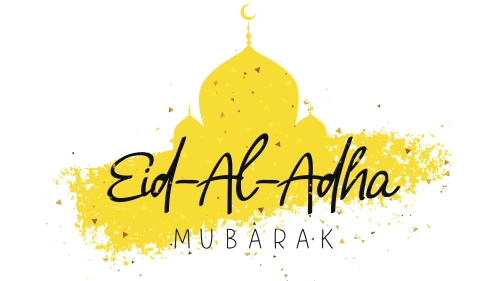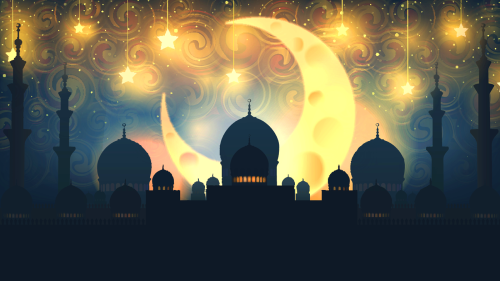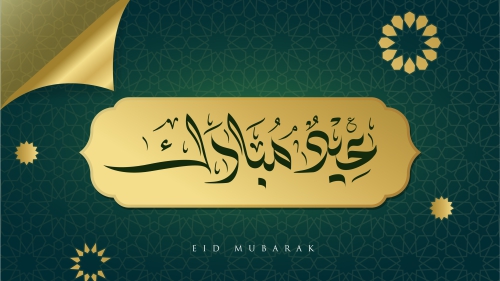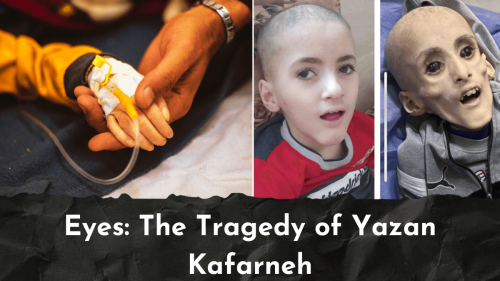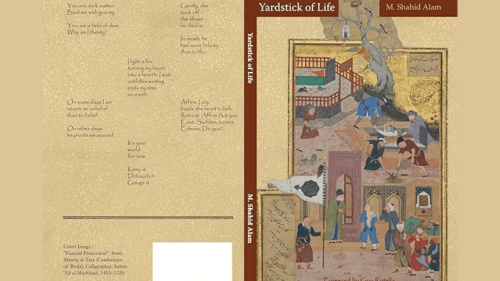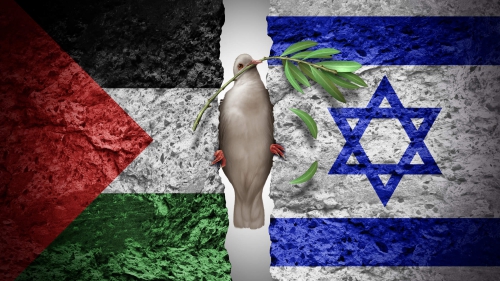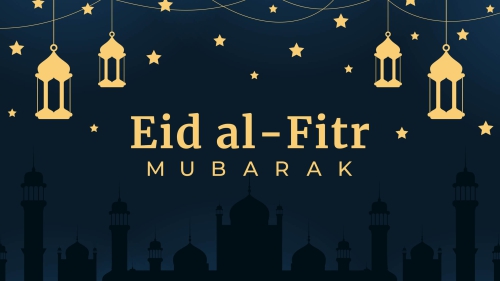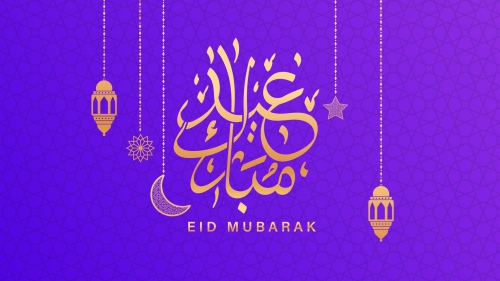A Rebel's Cry on Eid
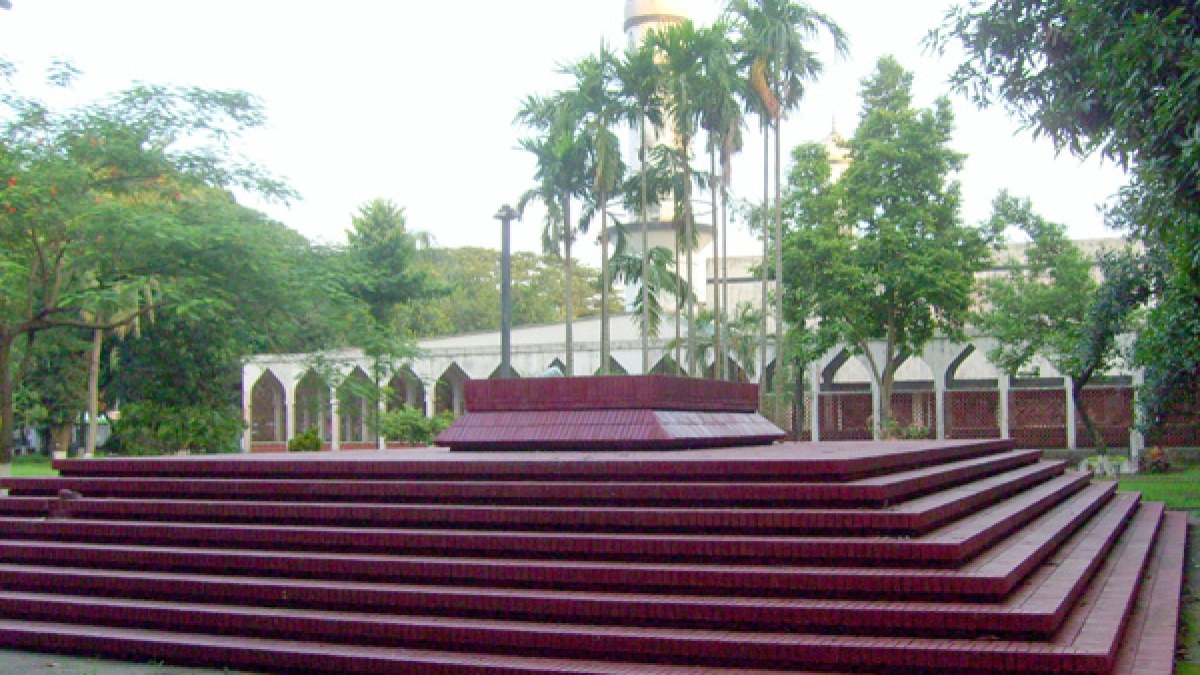
Ramadan and Eid in Poetry: The Contribution of Kazi Nazrul Islam
Ramadan is the most special month in the life of Muslims, as it is part of the Ethical Triangle of Islam, which I have articulated in a separate article.
The two holidays that predominate the Islamic tradition of festivities are: Eid al-Fitr and Eid al-Adha. However, Eids are not merely religious occasions, but also manifestation of the deeper Islamic culture and consciousness. Poetry is one of the mediums of that culture and consciousness. I don't know much about the poetry or songs contributed by Muslims in various languages on the theme of Ramadan and Eid. This is partly because translation of such works of art and culture is sparse, especially in English. I am also unaware of what already exists because my research has been rather limited. Nonetheless, I hope this essay will initiate an exchange in exploration of the expression of id in our broader culture and literature.
In this essay I will introduce the works of a special poet, Kazi Nazrul Islam [1899-1976]. For brevity he cannot be adequately introduced, but my hope is to attempt that in a follow-up essay. Nazrul was born in that part of Bengal, India, which is now West Bengal. His works are in Bangla, the fourth or fifth most spoken language in the world. In Bangladesh, the language of Bangla has a special history: the people of Bangladesh earned for it the status of official state language in 1952 through much struggle and sacrifice of their lives. The world community recognized their sacrifice with the International Mother Language Day, celebrated at the behest of the United Nation every year on February 21.
Nazrul appeared on the scene of Bangla literature when Hindu litterateurs dominated it, with the Nobel Laureate Rabindranath Tagore being a towering figure. Nazrul came in like a blazing comet and against substantial odds established his legacy in literature and music, part of which reflects his Islamic roots. Even though his literary career began a few years earlier, but in 1921, at the age of 22, a poem earned him instant fame and recognition. It was nothing short of an explosion in the literary world. That poem was "Bidrohi" [The Rebel]. The label became near-synonymous with his name; even though he is much more, he is popular as the Rebel Poet. Shaped by the context of the colonial British rule during his time, his rebellion was against all oppression and injustice that subdue human spirit and dignity. In defiance of all evil forces and powers, he roared out the message of freedom and rebellion (excerpt):
Proclaim, Hero, proclaim: I raise my head high! ...
Weary of battles, I, the Great Rebel, shall rest in peace
only when the anguished cry of the oppressed shall no longer reverberate in the sky and the air,
and the tyrant's bloody sword will no longer rattle in battlefields
only then shall I, the Rebel, rest in peace.
Although every Bangali (and Bangali includes Muslims as well as others) knows about Nazrul he is hardly known outside, because precious few of his works have been translated into other languages. I hope that will change.
Notably, The Rebel did not have any religious undertones or aimed to project Nazrul's Muslim identity. Traditional Muslims might not be at ease reading such a poem of rebellion, written in mythical symbolism drawn from around the world, especially if they are unfamiliar with the larger literary perspective of his works. However, part of his works that is the staple of Bangali Muslims in Bangladesh (by the way, Nazrul is the national poet of Bangladesh), West Bengal (India) and elsewhere, is hamd (hymns; praises of Allah) and na'at (eulogy of the Prophet), as well as other Islamic songs and poetry. I share some samples below. Nazrul was an unparalleled master of rhythm and youthful vibrancy, and his poetry was rhymed. No translation can duplicate either that rhythm or vibrancy. That noted, my translations here are rhymed. Disclaimer: Neither literature nor the English language is my forte; consequently, my translation is amateurish. I have also utilized translations of others, rhymed or otherwise.
Nazrul was universalistic, deeply humanity-oriented and full of love and compassion for people, especially the oppressed, deprived and downtrodden. In a poem (as well as song lyric) on the theme of Ramadan and Eid, he wrote (below is an excerpt):
At the end of the Ramadan Fast, O My Mind!
(Original: O Mon, Ramzaner oi rozar sheshe)
Translation: Mizanur Rahman
At the end of the Ramadan Fast, O My mind!
The End of pleasure has arrived!
Give thyself away this day
And harken to the heavenly command!
All your wealth and gold,
All your palaces are for God alone!
Pay off the poor-rates this day
To rouse the lifeless Muslims any way!
Thou art to say the prayer
On that field of Eid,
Where the Muslim valiant's gave their lives
And became Shaheed!
Forget who are friends and who are foes this day.
And grasp the hands of all.
By dint of Love make the entire world
Respond to Islam's call!
Those who have fasted all their life
Without break and pause,
Give to those poor ones this day
Whatever will serve their cause!
Pour out unto the goblet of your mind
The Shirnee of Tauheed!
The Prophet will be pleased, it seems,
To accept your gift!
Nazrul was a voice of conscience. He awakened the Muslims as to how they had lost the spirit enshrined in the Qur'an and the Prophetic legacy. In a poem about Eid, he beautifully portrayed the relevance of Eid for the poor and deprived.
O Destitutes!
Original: Sharbohara
Translation: Mohammad Omar Farooq
With the curved smile on your tender lips,
O crescent, is it a crooked suggestion?
Are you looking for companions to join you
to loot every home in desperation?
As if at the command of Allah
you are proclaiming from the sky,
O martyrs, why the rich do not pay
zakat any more - ask, ask them why?
In surplus of these wealthy and rich,
there is definitely a right
of all those hungry and deprived:
this is Allah's message, so clear and trite.
Take away their surplus and their
undeserving wealth; yes, take away!
You will be fulfilling a divine command,
who stands in the way?
Why are you like living dead,
imprisoned by powerlessness or decrepitude,
The plate of food rests close to you,
yet why embracing death in hunger is your attitude?
Have you no courage to extend your hand!
Is your hand disabled or feeble?
I am, the bandit, here to collect the poor-due;
get up and join me, don't quibble!
I have brought the message of Allah
through the Eid's crescent that shines above,
We will break our fast with all those treasured surplus
during this Ramadan - a month we all love.
Everyone will eat and satisfy their hunger
during this Eid celebration,
Don't despair and resign; rather loot
your share of the blessings of God in rightful jubilation.
To understand the context of the following poem, Peasant's Eid, one needs to recognize the socio-economic reality of peasant life in India as well as in other less developed parts of the world. The following annotations are helpful to better appreciate the poem.
BELAL: A prominent companion of the Prophet (p) of humble Abyssinian origin. He was a slave when joining Islam. Later, after great persecution, was freed by fellow Muslims. He was poor throughout his life, but earned prominence as the primary announcer of prayer (Muazzin) during the Prophet's time.
YAZID: The ruler of the Muslim world who usurped power by the hands of whose soldiers the grandson of the Prophet Muhammad (p), Imam Hussain (r) along with several family members, was killed.
FIQH: The body of Islamic law and jurisprudence.
ZAMZAM: The miraculous water-fountain in the valley of Makkah that Allah provided as the infant Ismail, the son of the Prophet Ibrahim (a), was dying of thirst, and his mother, Hajera (a), was desperately searching for water to save the child.
IMAM: Leader; commonly, prayer leader.
EID: celebration; festivity.
Peasant's Eid (Celebration)!
Original: Krishoker Eid
Translation: Mohammad Omar Farooq
Belal! O Belal! The crescent (helal)
shines in the western horizon!
Seeing what is going on, are you
hiding in shame in some desert-grave's prison?
Look at those peasants, bound
for the prayer-venue, like the skeleton of a mummy,
Have you seen going toward the slaughter-house
the little-fed cattle with sunken tummy?
They broke their fast with
the sherbet made of tears,
Is your voice choking, Belal,
giving the call for prayers?
Mortgaging the plates, bowls and water-jars,
these wretched are marching toward the prayer-venue,
with heart broken and head with bandana of indebtedness,
offering God's due is still on their life's menu.
Those whose lives are continuous fasting,
and can't sleep due to hunger's pain,
To visit these moribund peasants today,
has the auspicious Eid come again?
Crying for another droplet of milk,
the baby that died in life's cruel descent,
Has the rib-bone of that baby
appeared now as the beautiful crescent?
Piercing through screen of black shroud
that is spread sky-wide,
The slice of the moon shines
like that baby's tender lips' divide.
Peasant's Eid! He marches to the prayer venue
for his baby's funeral,
The more he hears Takbir-chanting,
his heart tears asunder with the rush of the adrenal.
The boy has died, the daughter is dying;
at his door the flood of death keeps knocking,
while around Makkah and the mosques
the band of Yazid keeps flocking.
Where is the Imam?
Today, which sermon will he recite?
All around lie corpses;
but even worse is in sight!
The wealthy people have gathered here
with attires of golden laces;
You are the Imam here?
Are you then the leader of those privileged faces?
You have imbibed from the Koran, hadith, and fiqh,
but ever in the mouth of these dead,
have you offered ambrosia, can you swear to that?
At least, try - go ahead!
You have prayed, recited the Koran, you also fasted,
I know these good deeds are on the list,
Alas, just a parrot! Have you ever given them
any hope, courage or strength in the least?
You have carried fruits, but
never tasted the nectar - the wretched fruit-basket!
Pebbles never imbibe anything, while remaining
a thousand years in the fountain-bed's casket..
Divine knowledge - what do you know
about the Omnipotent Lord?
How can one be a believer who is
never attached to life's power-cord?
Iman! Faith! You repeat day and night,
but is Iman so easy?
In carrying the load of Satan,
does ever a believer remain busy?
Listen liars! Those who are
real believers in this world,
the power of their simple wish
can shake and get the canvas of sky furled.
You simply chant the name of Allah,
but never knew or understood Him,
those who themselves are blind,
how can they show others the heavenly beam?
Those who themselves are chained,
how can they bring to others liberation?
How can they deliver honey to others,
when their own soul-hive is empty of life's vibration?.
Where is that true Imam,
at the strike of whose feeble feet,
the power-fountain of Zamzam starts flowing forever
to flood life's dry and barren street?
Those who are wimps themselves,
having no strength or power,
it is sad that we have to listen to them
giving sermons from the prayer-tower.
Those who would enliven and wake up
these hapless destitute in every nest,
where is that noble and inspiring leader
who again will restore true Eid in its full zest?
He will bring back from the depth of space
the smile of Eid's crescent - like a delightful regale,
the smile and joy that will never end,
and it never would go pale or stale.
At the graveyard, full of corpse,
I am waiting when will he arrive at this congregation?
Fast and breakfast, we will do together,
then it will be Eid - really a celebration.
Parallel to his universalistic message for the humanity Nazrul focused on the Muslim youth, who represented to him the hope and future. In a poem he paid tribute to those youth.
A Tribute from the Poet
(Original: Kabir Proshosti)
Translator: Mohammad Omar Farooq
Allahu Akbar!
Allahu Akbar!
From Allah comes today
Rahmat, Kauthar.
Those of whom Allah is patron
This victory is of them,
It is the victory of God's Will,
Not for our vain fame.
It is a victory, but
Merely the stepping stone, no more;
From so much bondage-affliction
Toward above we have to soar.
So much division, schism
Jealousy, greed and arrogance,
All these will simply disappear
With His one merciful glance.
You are the new travelers
You are bound toward Him,
Following your footsteps
Here comes a heavenly beam.
Yes, coming are the travelers
Young warriors of new age,
Soon world's misery and suffering
Will be confined in their cage.
A website is dedicated to introducing Kazi Nazrul Islam's life and works to the world. (www.nazrul.org) For those who are unfamiliar with Nazrul, it is important to note that Nazrul's talent was multi-faceted and unorthodox. As such, one should not consider him an Islamic poet per se, even though, in his own words, Islam was like an anchor of his thoughts and spirit. Just as did many mystics and others who preceded him, such as Omar Khayyam, Hafiz, etc., Nazrul earned the "kafir" fatwa from those who are generous with their practice of "takfir". I hope to introduce him and his works in a larger context in a follow up essay. Let me conclude with another popular Islamic song lyric. Listening to this song I feel it is my personal supplication to Allah; indeed, I could not have put my own dua and plea so beautifully. May Allah embrace his soul in abounding mercy and forgiveness.
Don't judge me, O Allah!
Original: Roj Hashore Allah Amar koro na bichar
Translation: Mohammad Omar Farooq
Don't judge me, O Allah,
on the Day of Resurrection!
This sinner doesn't want a trial,
wants your love and compassion!!
Quite knowingly throughout my life
sins have accumulated so rife,
I can't hope to survive your judgment and scrutiny;
Don't judge me, O Allah, please don't judge me!
If you really wish to judge,
why the name Rahman, the Most Kind?
Why did you give the knowledge
that by that name salvation we will find!
On that Day, as a humble mendicant,
when I will beg of you, O Lord, the Dominant!
Will you be able to turn me away with hands empty?
Don't judge me, O Allah, don't judge me!
Dr. Mohammad Omar Farooq is an associate professor of economics and finance at Upper Iowa University. He can be reached at farooqm59@yahoo.com.
If anyone has a literary bent and would like to translate Nazrul's works or introduce him to his/her own language, please contact me. *
Topics: Festivals (Eid) Channel: Poetry
Views:16113
Related Suggestions
Wa Fi AmmaniLaah
The poem 'peasents eid' bought tears to my eyes I could not continue
reading it beyond the first few paragraphs I suddenly wish I knew the
Bengali language.
medicine, farming techniques, where to get help... I
would like to see poems celebrating teachers, students,
the seeking of knowledge...
--haque
Again i might be missing the point here.....but a clear explonation will be welcomed....thanks.
sister in Islam.






